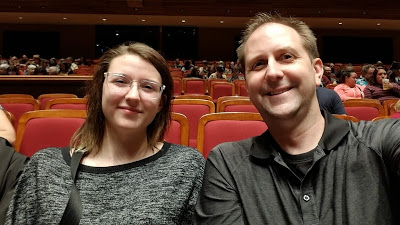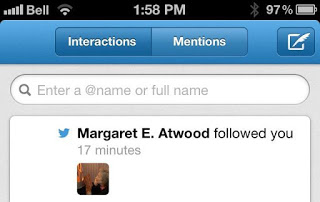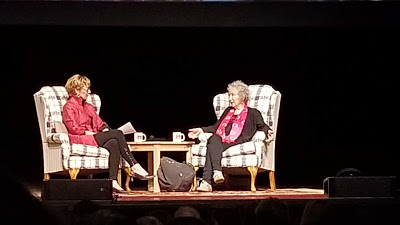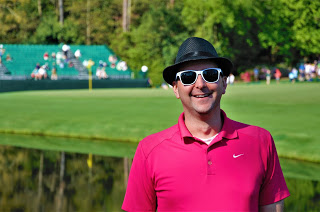Earlier in the week, someone asked me when I started writing. I started the story in typical fashion for me and true to form, lost the thread and never closed out the discussion. This post answers the question and covers what’s happened since.
On November 3rd, Facebook informed me that thirteen years ago I attended An Evening With Kevin Smith in Kitchener, Ontario, Canada. It took eleven days, but I articulated the impact that night had on me in a blog post. You don’t need to read it before continuing this, but it might be interesting to read after. The relevant takeaway is that the post explains the answer to the question asked to me, and traces its origin back to the Kevin Smith show.
It took a few other fortuitous connections and a sliver of synchronicity, but if my writing journey is the fire, those connections were the kindling, and that Kevin Smith show was the spark.
I’ve long supported the adage that, “A rising tide lifts all ships.” I’m also a firm believer that no two people can take the same path and that, ultimately, we are the ones who get to define what success means for us.
In the thirteen years since that fateful evening do I feel I have been successful as a writer? If you would have asked me a year ago I would have said, “Somewhat.” Through the lens of today, however, the answer is a resounding, “Hell yes.” Why the change? What happened in that year to make the difference? To understand that, I need to recap the twelve years that followed the Kevin Smith show and give you some insight as to why my response was “somewhat”.
In (more or less) chronological order:
- 2010: Blogged a lot. Immersed myself in the world of writing and met as many writers as I could
- 2011: Failed attempt at completing a screenplay
- 2011: Failed attempt at completing a novel
- 2011: “Sold” a song for a podcast opening to Kevin Smith (he “art swapped” it for tickets to see him speak)
- 2012: Completed the first draft of a novel, No Fixed Address
- 2013: Short story Losing Vern published in the Orange Karen: Tribute to a Warrior anthology
- 2014: Completed a standalone novel, Hard Truth
- 2015: Completed the first draft of No Known Cure, a sequel to No Fixed Address
- 2015: Started writing for the OCH Literary Society
- 2016: Ghost wrote two short stories and completed a standalone novel, Suburbia, and sold it to the same person
- 2016: Completed my first nonfiction book, Bent But Not Broken: One Family’s Scoliosis Journey
- 2016: Three freelance articles for the website The Good Men Project
- 2016-2017: Two freelance articles for the website YourTango
- 2017: Received my first publishing contract for BENT
- 2017: Received a publishing contract for Hard Truth and the The “No” Conspiracies (No Fixed Address, No Known Cure, and three more)
- 2017: Contributed three essays to the Stigma Fighters: Volume 3 anthology
- 2018: Bent But Not Broken published
- 2018: Hard Truth published
- 2019: Completed the novel, No End In Sight
- 2020: Sent the three completed The “No” Conspiracies books to my publisher
- 2020: COVID. Publisher ceased releasing books (despite ebook sales growing in popularity. A decision that flummoxes me to this day)
- 2021: Requested, and was granted, reversion of rights to The “No” Conspiracies series
- 2021: Started exploring options for rights reversion for Bent But Not Broken and Hard Truth (this was not feasible as it would have cost me $1500 – per book – to get the rights back. I had no choice but to ride out the contracts to term; January and November 2023 respectively)
- 2021: One freelance article for the website The Good Men Project
- 2021: Short story accepted to an anthology (top secret project, publication date TBD)
- 2022: Publisher decided to part ways with me and a handful of others citing COVID as the reason (still flummoxed at the rationale, but was happy as heck to be out from under a horrible contract)
- 2022: Self-published Bent But Not Broken
- 2022: Eleven freelance articles/posts for the website The Good Men Project
- 2022: Completed the first draft of the standalone novel, Known Order Girls

By all accounts, those twelve years were pretty darn good. I was managing a full time job and a family with two small kids, a social life, a pretty serious bout of insomnia, and a severe concussion that had me off of work for months. Still, I carried feelings of inadequacy and laziness that have plagued me my whole life. I always felt like I wasn’t enough, that I had to work twice as hard to get half as far, that I wasn’t smart, that I was lazy, that I was capable of more.
Then came the diagnosis. Mild to moderate ADHD complicated by multiple traumatic brain injuries (TBIs). That explained a whole lot.
It was eye opening to finally understand why, despite all logical signs indicating otherwise, I’ve always carried these feelings of nonperformance, inadequacy, and lack of intelligence. In hindsight, I wonder why I never said anything. I mean, I know why I didn’t. Mental health wasn’t something you discussed openly. It wasn’t until I had friends talk about getting evaluated for ADHD and other non-neurotypical tendencies that I even entertained the possibility. Still, it took more than a year before I sought out someone to ask. I cannot understate how much it means and how helpful it is knowing why I feel the things I feel and why I am the way I am.
Half a dozen failed attempts at finding medication that works and another months long battle with insomnia that’s still rages later, I can look back at the last year and feel good about what I’ve accomplished.
In a moment of hyper-fixation during National Novel Writing Month (NaNoWriMo), I wrote Near Death By A Thousand Cuts: A Humorous Memoir of Misfortune in the 30 days following my diagnosis. Writing a book in a month is no small task, but writing one that’s an account of injurious events in my life and finding the humour in them was rewarding and educational both in the introspective as well as practical senses.
Then I published it, recorded the audiobook for it, and marketed it. The publishing was fairly straightforward but I learned a lot about how to make that process as efficient as possible. Recording the audiobook was an adventure I care to never repeat. I could not have done it without the help of this Instructables article. The marketing and promotion was tough. How does a virtual nobody from Canada get people to buy an expletive-laden humorous memoir? Hard work, perseverance, and a bit of dumb luck.
With a limited social media presence that was virtually nonexistent anywhere but Facebook, I needed to grow my audience and find my public voice. In the twelve months since I finished Near Death, I doubled my Facebook followers from 1,000 to 2,000. I recorded hundreds of TikToks. I started engaging more with readers, writers, and other personalities I enjoyed. I made friends and leaned on them for advice and support. Really, I was just being myself, but publicly for everyone to see. The average self-published book sells 250 copies in its lifetime. I sold that many copies of Near Death in six months.
I found an editor for Known Order Girls through my very first writer friend, the guy who attended the same Kevin Smith show as me, and whose blog post about it inspired the blog post I wrote thirteen years ago. Some of these new connections are beta reading it for me. Others are cheering me on, and that feels so good. I’m going to try to query for an agent with it when my editor is done marking it up with her red pen. Even if I don’t find one and end up self-publishing it, I know that all the hard work I put in on Near Death will come in handy. In my mind, the book is already a success. I don’t know if people will think it’s good, but it’s definitely the best thing I’ve ever written and is a great source of pride.
It would be easy to point to the new followers, new friends, the finished magnum opus, and the book sales and say, that’s the difference between twelve months ago and now. While all are great things, that’s not why I changed my answer. The difference came from all the things I learned and the change in perspective that happened along the way. These are my accomplishments, I did them on my own terms, at my own pace, and I am proud of them.
Success.















